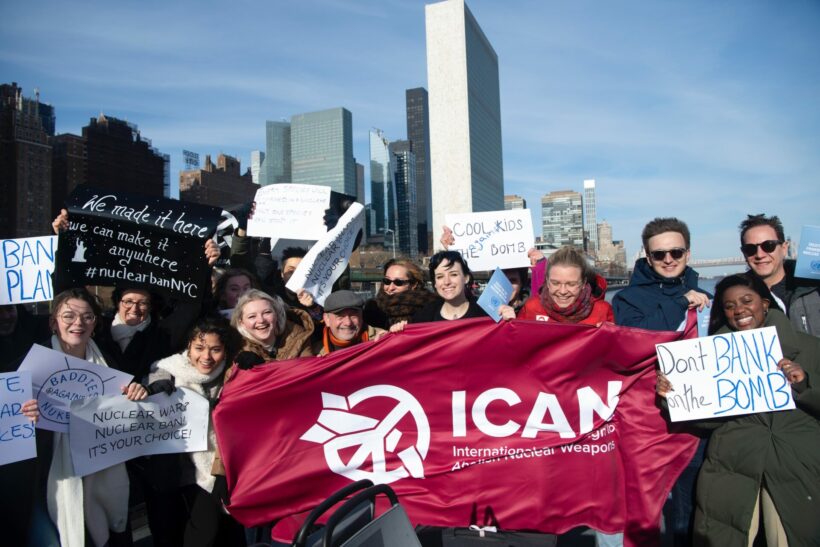We publish the diary of events around the International Conference of States Parties to the Treaty on the Prohibition of Nuclear Weapons taking place these days in New York; the diary is written for Pressenza by Sandro Ciani of the World Without Wars and Without Violence delegation.
Sunday 26 November, 10am-5pm
Brick Church
62 E 92nd St, New York, NY 10128, United States
The purpose of this meeting is to prepare activists from the International Campaign to Abolish Nuclear Weapons (ICAN) for the Second Meeting of States Parties (2MSP) to the Treaty on the Prohibition of Nuclear Weapons (TPNW). The meeting was attended by some 250 people representing 100 countries.
ICAN Executive Director Melissa Parke recalled how the risk of a nuclear explosion due to a possible error, accident, or sabotage looms over humanity on a daily basis; the impacts on nuclear test populations (such as, for example, Kazakhstan) open up the insights related to Articles 6 and 7, such as victim assistance and environmental clean-up.
The emergence of the treaty in 2017 in NYC and its subsequent institutionalization is enabling its universalization as a foundational pivot for nuclear disarmament even vis-à-vis the Non-Proliferation Treaty while being aware that the pressure on nuclear states will have to be continuous and unrelenting.
The speeches in the first part concluded with the excellent news that Indonesia is about to ratify the treaty in the coming days.
Less positive news emerges during the second part due to the recent international crises: in fact, both Russia and the US are modernizing their arsenals, consequently prompting the other 7 nuclear countries to follow suit, leading to a domino effect also on mutual allies who would be equipped with so-called tactical bombs.
Even the number of new countries that would agree to host nuclear devices in Europe could increase to a maximum of 9 (6 or 7 more in NATO, a couple under Russian influence).
This entails considerable economic investments, health risks in the areas where the new devices are developed and stored, all in the name of a deterrence that misuses the word security by cloaking it with ideological meanings; there is no compatibility between nuclear weapons and security.
The meeting closed with the denunciation that Russia is seeking to expand its atomic program on the African continent; hence the proposal under discussion at the African Union to allow the use and sale of their uranium for peaceful purposes only.
At the same time, in the US, in order to close the door to the influence of the nuclear industry, plans are being made to affect educational levels at all levels by making students aware of the catastrophic impacts of such weaponry.
Sandro Ciani










